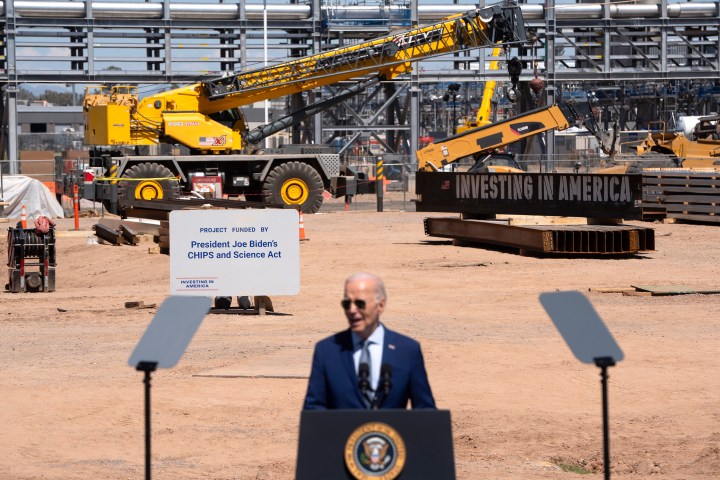
CHIPS Act to give Intel $8.5 billion in direct funding, plus loans
CHIPS Act to give Intel $8.5 billion in direct funding, plus loans

The Joe Biden administration announced the latest round of funding under the CHIPS and Science Act on Wednesday — that’s the massive effort to build up the semiconductor industry here in the U.S.
Under the deal, semiconductor giant Intel will get up to $8.5 billion, which will help the company build new plants and expand operations in several states. It’s the largest batch of funding under the CHIPS Act so far.
There’s more than $50 billion in the legislation to support domestic chip manufacturing. So the investment in Intel is pretty significant.
“This announcement is mostly direct funding, but there is also a loan envisioned,” said Ryan Mulholland, a senior fellow for international economic policy at the Center for American Progress.
With the direct funding and an additional $11 billion in loans, plus tax credits, “this will help Intel build facilities in four different states and be an investment in sort of leading-edge semiconductor manufacturing,” he said.
Those locations include in election year swing states like Arizona and Ohio. Intel will also expand its operations in New Mexico and Oregon.
“Those are really high-paying jobs, and so excellent for the Portland economy and the state of Oregon economy,” said Bruce Blonigen, dean of the Lundquist College of Business at the University of Oregon.
Even though this tranche of funding is expected to create tens of thousands of construction and manufacturing jobs, “this is going to be touted as important, but it’s much more of the geopolitical considerations,” Blonigen said.
Remember, the point of the CHIPS Act was to make the U.S. less dependent on technology from outside the country.
“There is a sort of competition and research agenda to make ever-smaller chips that power new applications, particularly in emerging technologies like artificial intelligence,” said Sujai Shivakumar, a senior fellow at the Center for Strategic and International Studies. “Yielding that leadership will have enormous consequences for our economics, for our growth, our independence, our national security in many, many ways.”
The Commerce Department wants the U.S. to manufacture 20% of the world’s most advanced chips by 2030.
There’s a lot happening in the world. Through it all, Marketplace is here for you.
You rely on Marketplace to break down the world’s events and tell you how it affects you in a fact-based, approachable way. We rely on your financial support to keep making that possible.
Your donation today powers the independent journalism that you rely on. For just $5/month, you can help sustain Marketplace so we can keep reporting on the things that matter to you.











